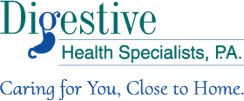Colon Cancer Screening
March is Colon Cancer Awareness month!
Are you up-to-date on the latest statistics for colon cancer?
Colorectal cancer is the second leading cause of cancer death in men and women combined and the fourth most commonly diagnosed cancer in the United States. Did you know there is a 90% survival rate when cancer is found and treated early? Yet, the current statistics report that 1 in 3 American adults are not screened as recommended!
Interestingly, colorectal cancer incidents and deaths among adults age 55+ have declined since 2000, however, the cancer incidents and deaths among adults younger than age 55 have increased. Rectal cancer has doubled in incidence in individuals age 20-49 years old since 1994. Adults born in 1990 have twice the risk for colon cancer and four times the risk of rectal cancer compared to those born in 1950.
With alarming rates like these, special attention should be given in young patients who are experiencing symptoms.
What are the different signs and symptoms of colorectal cancer?
- A change in bowel habits such as diarrhea, constipation, or narrowing of the stool that lasts for more than several days
- A sensation that you need to have a bowel movement and this sensation is not relieved after the passage of stool
- Rectal bleeding with bright red blood
- Blood in the stool which may cause a stool to look dark, black or tarry
- Unintended weight loss
- And other nonspecific symptoms of weakness and fatigue
- No symptoms at all!
Who should get screened, and why?
A screening tool is something that looks for cancer in people who do not have any symptoms, it is often referred to as an early detection process. The different types of tools for screening will be discussed in a separate section. The current guidelines from the American Cancer Society suggest that adults at average risk should begin screening at age 45, however, this was only recently updated from prior recommendations to begin at age 50 and not all guidelines have updated their screening age.
People at increased risk may require different screening recommendations. You may be at increased risk if any of the below are applicable:
- Strong family history of colorectal cancer in first degree relatives (mother, father, son, daughter, brother, sister)
- Personal history of colorectal cancer or certain types of polyps
- Personal history of inflammatory bowel disease (ulcerative colitis or Crohn’s disease)
- A known family history of familial adenomatous polyposis or Lynch syndrome
What are the different types of screening methods?
Screening methods are divided into the following categories: Stool-based testing and visual exams. We will focus on colonoscopy since this is the gold standard for colorectal cancer screening. A colonoscopy is the only screening test that not only detects but also prevents colon cancer. A colonoscopy uses a video camera scope with a light to visualize the tissue inside of the colon; this process not only detects polyps but removes them as well. There are various different types of polyps; some of them are completely benign while others are considered precancerous because studies have shown that over time these types of polyps can grow into cancer.
If you would like more in-depth information about various screening tests, including the pros and cons of each, then check out the guidelines set forth by the American Cancer Society.
Why make an appointment with Digestive Health Specialists?
As the incidence of colorectal cancer in cancer deaths is on the rise in the United States, we at Digestive Health Specialists understand the importance of early diagnosis. We will discuss your risk for colorectal cancer, and together decide which method of colorectal cancer screening is best for you. Please feel free to contact one of our many locations, to set up an appointment today.
Article by Justine Unruh, PA-C.
Formerly a physician assistant at Digestive Health Specialists.
—
Digestive Health Specialists, PA is here to help you if you, or someone you know, would like more information, or if you are experiencing any of the above symptoms and would like further evaluation. To make an appointment, feel free to give us a call at 336-768-6211.






